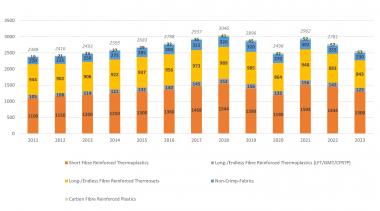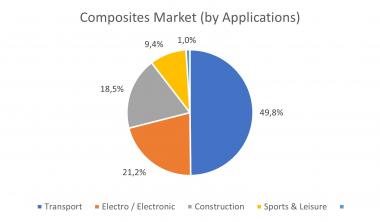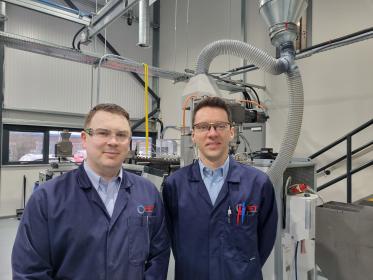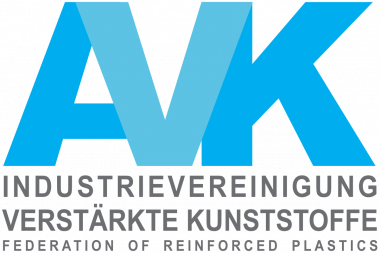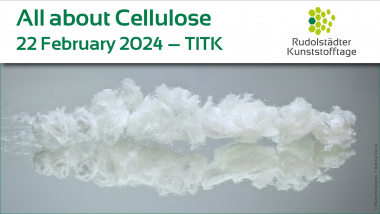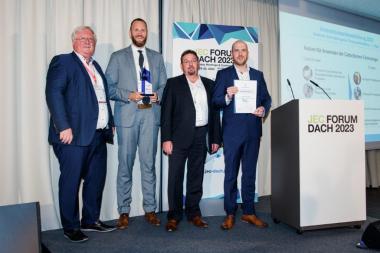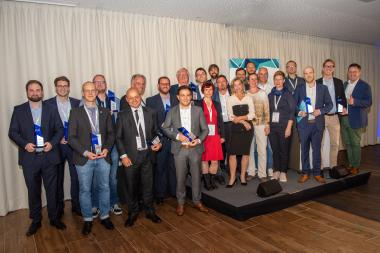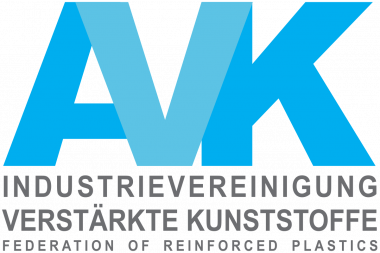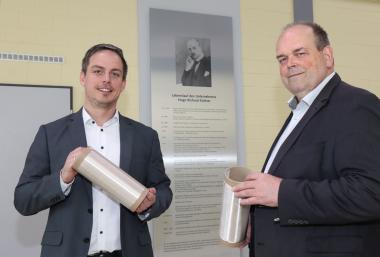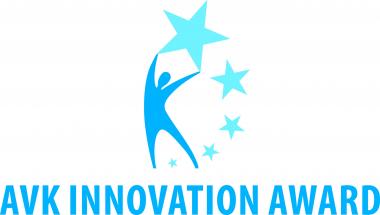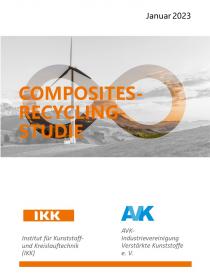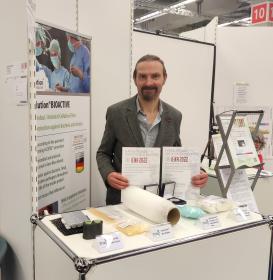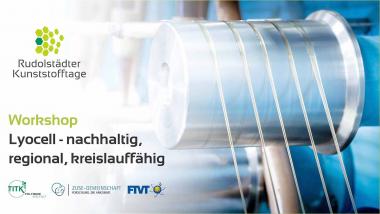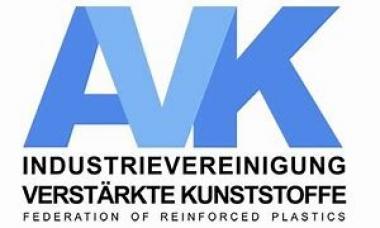17. World Pultrusion Conference 2024: Deutlich niedrigere Marktdynamik in Europa
Knapp 150 Teilnehmende trafen sich auf der zweitägigen World Pultrusion Conference (WPC) in Hamburg, um sich in 25 Fachvorträgen über aktuelle Entwicklungen und Innova-tionen zu informieren. Organisiert wird die im zweijährigen Rhythmus stattfindende Veranstaltung von der AVK für die European Pultrusion Technology Association (EPTA) in Zu-sammenarbeit mit der American Composites Manufacturers Association (ACMA).
Momentan dominiert auf den Märkten der Branche in Deutschland und Europa eine eher negative Stimmung. Das europäische Composites-Produktionsvolumen war bereits in den vergangenen Jahren rückläufig. 2022 gab es einen Rückgang des europäischen Produktionsvolumens bei Composites um 9 %. Für 2023 muss nun erneut ein Rückgang von 8 % des Gesamtmarktes für Composites in Europa festgestellt werden. Der Weltmarkt für Composites hat sich demgegenüber im vergangenen Jahr positiv entwickelt und weist für 2023 bei einem Wachstum von etwa 5 % ein Gesamtvolumen von 13 Millionen Tonnen auf. Insgesamt war die Marktdynamik in Europa deutlich niedriger als weltweit. Der Marktanteil von Europa am Weltmarkt sinkt auf etwa 20 %.
Die Gründe sind vielfältig: Haupttreiber dürften die nach wie vor hohen Energie- und Roh-stoffpreise sein. Hinzu kommen weiterhin Probleme in einzelnen Bereichen der Logistik-ketten, beispielsweise auf einzelnen Handels-/Containerrouten sowie ein zurückhaltendes Konsumklima. Eine Verlangsamung des Welthandels und Unsicherheiten im politischen Bereich befeuern derzeit die negative Stimmung im Markt.
Die zwei zentralen Anwendungsbereiche sowohl für die Composites-Industrie generell, aber auch die Pultrusions-Industrie im Speziellen, sind der Bau-/Infrastrukturbereich und der Mobilitätssektor. Die Bauindustrie als zentraler Anwendungsbereich steckt aktuell in einer Krise: Noch sind die Auftragsbücher gut gefüllt, doch Neuaufträge bleiben vielfach aus. Hohe Zinsen und Materialkosten bei hohen Lebenshaltungskosten belasten vor allem den privaten Bau stark. Aber auch der öffentliche Bau kann die selbst gesteckten Ziele momentan nicht erreichen. Laut dem ZDB (Zentralverband Deutsches Baugewerbe) bleiben die Prognosen in diesem wichtigen Bereich düster: „Der Rückgang der Baukonjunktur setzt sich weiter fort. Der Umsatz wird in diesem Jahr real um 5,3 % zurückgehen und im kom-menden Jahr gehen wir von weiteren minus 3 % aus. Verantwortlich für das Minus bleibt der Wohnungsbau, der in diesem Jahr real um 11 % einbricht und 2024 mit -13 % seinen Sinkflug fortsetzt.“ Trotz steigender Zulassungszahlen ist auch die Automobilindustrie als wichtigster Anwendungsbereich für Composites noch nicht auf ihr altes Volumen von vor 2020 zurückgekehrt. Derzeit scheint es nicht zu gelingen, mit politischen Maßnahmen ein für die Industrie positiveres Umfeld zu schaffen.
Nachhaltigkeit wird zunehmend zu einem zentralen Thema der Industrie. In zwei Vorträgen des Europäischen Fachverbandes der Composites verarbeitenden Industrie (EuCIA) und des Amerikanischen Fachverbandes der Composites Industrie (ACMA) wurden Fortschritte und das politische Grundgerüst in den jeweiligen Regionen erläutert. Beide Vorträge kamen zu dem Schluss, dass der Handlungsdruck auf alle Akteure innerhalb der Industriezweige in den kommenden Jahren steigen wird. Composites verfügen über ausgezeichnete Eigenschaften in diesem Bereich, in den letzten Jahren wurden bereits viele Fortschritte hinsichtlich der Datenerfassung und auch im Bereich der Standardisierung erzielt. Diese gilt es zunehmend herauszuarbeiten und auch gegenüber der Öffentlichkeit zu betonen. Über entsprechende politische und normative Aktivitäten werden beide Fachverbände das Thema weitertragen und versuchen, die Industrie bei der praktischen Umsetzung zu unterstützen.
AVK - Industrievereinigung Verstärkte Kunststoffe e. V. European Pultrusion Technology Association EPTA World Pultrusion Conference
AVK - Industrievereinigung Verstärkte Kunststoffe e. V.








